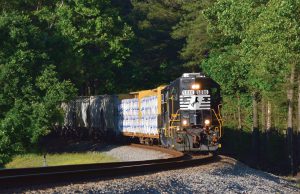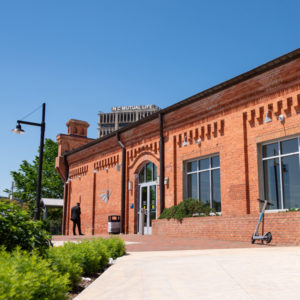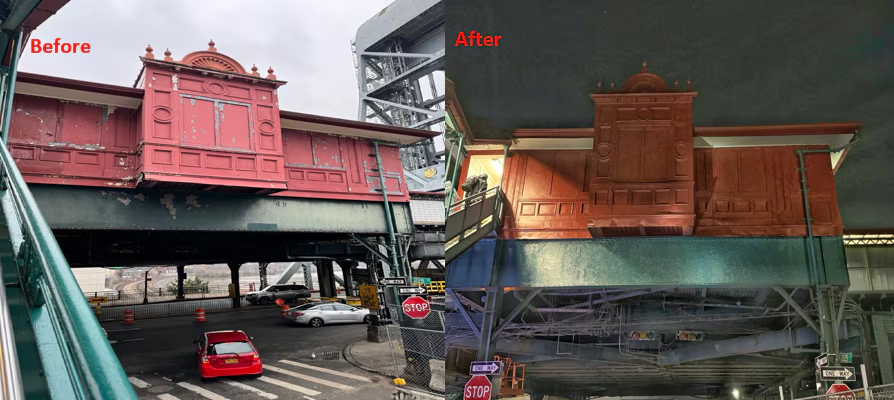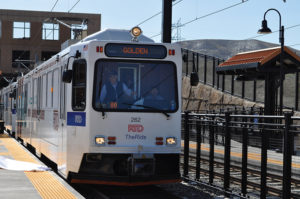Judge urges dueling railroads to compromise
Written by jroodA federal judge heard arguments in a contentious railway rights case concerning access to a paper mill in Madawaska, Maine, the Bangor Daily News reports. U.S. District Judge John Woodcock took the case under advisement. At issue was a request by Canadian National Railway Co. for a preliminary injunction allowing it access to the Twin Rivers Paper Co. on tracks owned by the Montreal, Maine & Atlantic Railway while the case progresses in court.
Noting
arguments made by both rail companies and the mill, formerly known as Fraser
Papers, Woodcock said each of the businesses gave "apocalyptic views" of an "economic
hell to pay" if he didn’t side with their argument. Twin Rivers and CN are
arguing for access to the mill through the rail spur; MM&A is arguing
against it.
At
the end of the hearing, Woodcock told the parties he could make a decision in
the case, which would result in one party winning and the other losing. Instead,
he urged the parties to work together on a compromise.
"The
stakes here are high. We have a lot of people working against each other," said
Woodcock, "but they can also work with each other."
CN
spokesman Patrick Waldron said his company in 2001 obtained what’s essentially
an easement to access the mill from the MM&A’s predecessor, the Bangor and
Aroostook Railroad. Under an agreement that recently expired, MM&A provided
switching services and physical access to the mill, taking freight cars to and
from CN on the spur. Waldron said the mill wants CN to handle all the traffic,
right up to the mill’s doorstep.
While
MM&A has been providing the switching services at the mill, CN attorney
George Marcus argued that his client always had the right to access the mill
directly, and now wanted to assert that right on MM&A tracks. He urged
Woodcock to issue an order allowing his client physical access on the tracks,
in order to preserve competition in the market.
MM&A
attorney Timothy Shannon argued that while CN had commercial access to the
mill, it never had physical access. The $5-million agreement in 2001 allowed CN
to access tracks to a point 1,780 feet from the mill, he said. Marcus argued that
was a mistake made by both CN and the Bangor and Aroostook. The railways
believed access right up to the mill had been granted, he said.
Shannon
asserted that his client owned the tracks, and the mill and CN are trying to
relegate MM&A to "lowly subcontractor" status, rather than as a competitive
business with property rights. Shannon also suggested the case belonged in
front of an arbitrator with in-depth rail law experience, and noted that CN
never had physical access to the mill. The requests for preliminary relief were
overblown, he said.
Relations
between Twin Rivers and MM&A deteriorated over the past several years. Mill
executives claimed that MM&A failed to maintain the company’s railroad
tracks and missed delivery and pickup deadlines – often forcing the coated and
uncoated paper maker to hire trucks on the fly to make shipments – because of
miscommunication or insufficient numbers of railroad runs.
MM&A
officials countered that they were trying to meet demand, but that the mill’s
use of trucks and downturn in production made running more trains uneconomical
and helped create the conditions that led to the company’s seeking to abandon
about 233 miles of track earlier this year.
MM&A
officials also said that the mill’s decision to split traffic between them and
CN helped cause the railroad’s financial woes. The state of Maine is in the
process of buying the tracks for $20.1 million, and plans to rehabilitate and
lease them to third-party operators. The spur in question is not part of that
deal.
Bill
Peterson, director of human resources for Twin Rivers, said that when MM&A
announced their plan to abandon the line, the mill looked elsewhere for freight
service.
"We
need the most efficient, cost-effective rail service we can get," said
Peterson. "Does it matter to us whether it’s the MM&A or the CN? No, as
long as we have the service we need to get it to our customer in a timely way."
Peterson
said Twin Rivers was under the impression that CN had rights to use the rail
spur, and that was why the mill was intervening in the suit, to support that
case.





